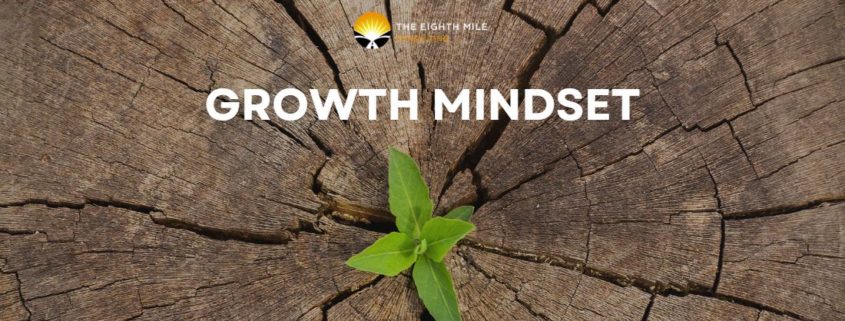At its core, a growth mindset is a belief that intelligence and abilities can be developed through hard work, dedication, and perseverance. This approach contrasts with a fixed mindset, which assumes that skills and talents are predetermined and unchangeable. Cultivating this mindset within ourselves and our teams is critical for creating an environment that fosters continuous learning, innovation, and improvement.
Why is it important for leaders:
- Encourages Risk-Taking and Innovation: Leaders with a growth mindset are more likely to take risks and embrace innovation. They view failures and setbacks as opportunities to learn and improve, rather than obstacles to success. By fostering a culture of creativity and innovation within our organization, we can create a competitive advantage and stay ahead of the curve.
- Fosters Resilience and Adaptability: Leaders with a growth mindset are more resilient and adaptable in the face of change and uncertainty. They are more likely to see setbacks as temporary and to bounce back quickly from failures. This resilience and adaptability can help our team members to do the same, creating a more resilient and adaptable organization that can navigate challenges and seize new opportunities.
- Encourages Continuous Learning and Improvement: Leaders with a growth mindset are always looking for ways to learn and improve. They seek out feedback and constructive criticism, and they are open to new ideas and perspectives. This approach encourages our team members to do the same, fostering a culture of continuous learning and improvement within our organization. This, in turn, can lead to greater innovation, productivity, and profitability.
- Promotes a Positive and Supportive Workplace Culture: Leaders with a growth mindset are more likely to create a positive and supportive workplace culture. They encourage their team members to take risks, make mistakes, and learn from them, rather than punishing or criticizing them for failures. This approach creates a more positive and supportive workplace environment, which can lead to higher employee engagement, productivity, and retention.
So, how can we cultivate a growth mindset within ourselves and our team members? It takes time and effort, but the benefits are well worth it.
Level Up Your Leadership
Developing a Growth Mindset:
-
- Embrace Challenges and Setbacks: Leaders with a growth mindset embrace challenges and setbacks as opportunities for growth and learning. We can encourage our team members to do the same by reframing failures as learning experiences. We should also celebrate progress, no matter how small. This creates a culture where taking on new challenges is seen as an opportunity rather than a burden. Which leads to a more engaged and motivated team.
- Seek Out Feedback and Constructive Criticism: Leaders with a growth mindset seek out feedback and constructive criticism to improve their skills and performance. We can encourage our team members to do the same by providing regular feedback. In doing do, we create an environment where feedback is seen as a tool for growth and improvement rather than a personal attack. This helps our team members to see the value in constructive criticism and use it to improve their performance.
- Focus on Effort and Persistence: Leaders with a growth mindset focus on effort and persistence. Rather than natural ability or talent. We can encourage our team members to do the same by highlighting the importance of hard work and dedication in achieving success. By focusing on effort and persistence, we can create a culture where team members are willing to put in the work necessary to achieve their goals.
Conclusion – What is a Growth Mindset?
Leaders can cultivate a growth mindset within themselves and their team members by embracing challenges and setbacks, seeking out feedback and constructive criticism, focusing on effort and persistence, and fostering a culture of learning and improvement. These strategies may take time and effort to implement, but the benefits are well worth it. Ultimately, a growth mindset can help individuals and teams achieve their full potential. Thereby, creating a more successful and sustainable organization.
By cultivating a growth mindset, we can create an environment where we embrace challenges, seek out constructive criticism, and focus on effort and persistence. We can create a positive and supportive workplace culture. Team members feel encouraged to take risks, make mistakes, and learn from them. This approach can lead to higher employee engagement, productivity, and retention, as well as a more innovative and adaptable organization.



Leave a Reply
Want to join the discussion?Feel free to contribute!